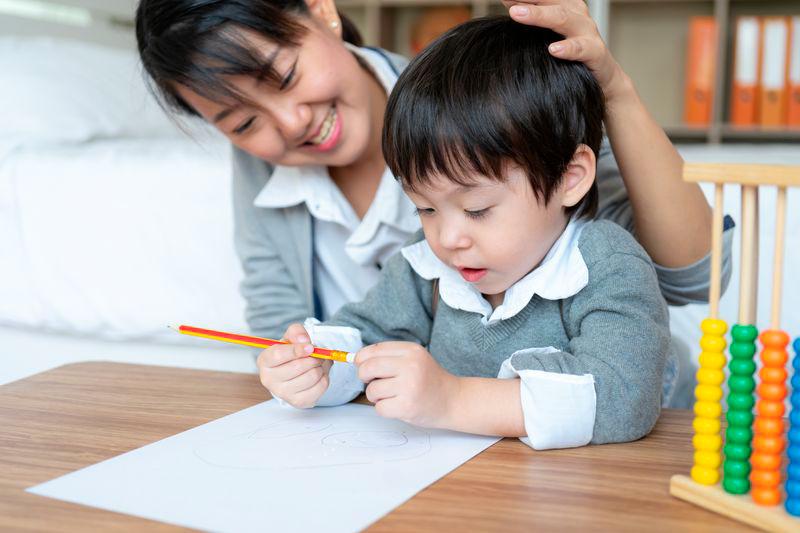WHILE much has been done to improve the education of persons with disabilities (PWDs), with increased allocations in Budget 2025, more needs to be done in terms of specialist teachers, upgraded infrastructure, quality of teaching and curriculum, and focus on individualised education plan (IEP) for each child. Most importantly there is a need to engage with parents and the community for the overall betterment of the special needs child or adult.
As the mother of a special needs adult daughter, who is now 34 years of age, and working as an assistant teacher, it continues to be a cause of concern that Malaysia continues to lag behind other neighbouring countries in its ability to provide the level of education and training required for special needs.
Based on current information, as of September 2019 there are 85,574 special education needs (SEN) students registered in Malaysia, of whom 68,874 students are in the Special Education Integrated Programme (SEIP), which covers mainstream schools with special needs classes. The breakdown also revealed 967 in preschool, 38,710 in primary schools and 29,197 students in secondary schools.
These numbers refer to parents who have registered their children in government special education classes, but there is a growing number of parents, whose numbers remain unknown, who have chosen to enrol their special needs children, diagnosed as autistic, slow learners, dyspraxic, dyslexic, ADHD, Down syndrome and a variety of other known learning disabilities in private special needs centres or non-governmental organisations (NGOs).
Due to the government’s inability to provide for the education of PWDs to the same standard as normal children, many parents of PWDs seek private special schools or NGO centres to provide for the educational needs of their children and adults.
The cost is high and many parents feel not enough has been done to lessen their financial burden.
There is also the problem of overcrowded classrooms, due to lack of teachers and many parents have described the classes as more of baby sitting as teachers are unable to cope with the more difficult behaviours.
It is accepted that learning disabilities have an impact on 4-6% of the population and Malaysia with a current population of 35 million reveals a figure of 2,100,000 PWDs. Only a fraction are registered at government schools, an unknown number in private schools, while many, possibly in rural and non-urban areas remain at home.
Lack of specialist trained teachers
Raaginee Shalesh, who founded a special needs private learning centre in 2004, Pusat Jagaan and Latihan Insan Istimewa, located in Subang Jaya, which today has 12 teachers and 150 students ranging in age from 9 to 38 years, feels parent dissatisfaction with government funded special education schools can be tacked with structural changes.
“There is a lack of trained professionals, whether speech therapists, specialist teachers, occupation therapists and psychologists trained in behaviour management.
“While there are many high functioning special needs, there is an equal number of low functioning PWDs who need early intervention and an IEP while they are in primary school but the teachers in government schools are not trained to provide that kind of specialist training, and by the time they reach a certain age, they will not respond to any form of intervention,” said Raaginee who also runs community programmes in sports such as futsal for PWDs.”
Raaginee revealed that many parents are disappointed with the lack of updated resources needed for teaching and learning such as computers and gadgets that can enhance learning at a faster pace.
“Most of the special needs children are also lumped into one classroom and parents feel there is not only insufficient teachers but each of their children have different learning disabilities and cannot be taught in the same way-again the lack of an IEP,” she shared.
Outdated and ineffective curriculum
The current curriculum is outdated and not tailored to address the diverse spectrum of curriculum needed for special needs and their developmental changes. There is a lack of teaching resources in terms of learning tools needed to match an advanced curriculum for those who need it.
Parents’ involvement and input
For the child to progress in special education classes, the teachers need to involve parents and provide reports on how to work with the child or adult at home but this is lacking due to insufficient teachers.
The biggest challenge is lack of a comprehensive, individualised approach to education for children and adults with special needs. The one-size-fits-all approach fails to address the diverse needs of special needs education.
Not many parents have the money or resources to provide private special needs therapy or even enrol in private centres.
It is time for the government to take cognisance of the need to not only provide classes but also ensure that the PWDs are provided the tools that will allow them to transition to working adults and be an asset in society.









